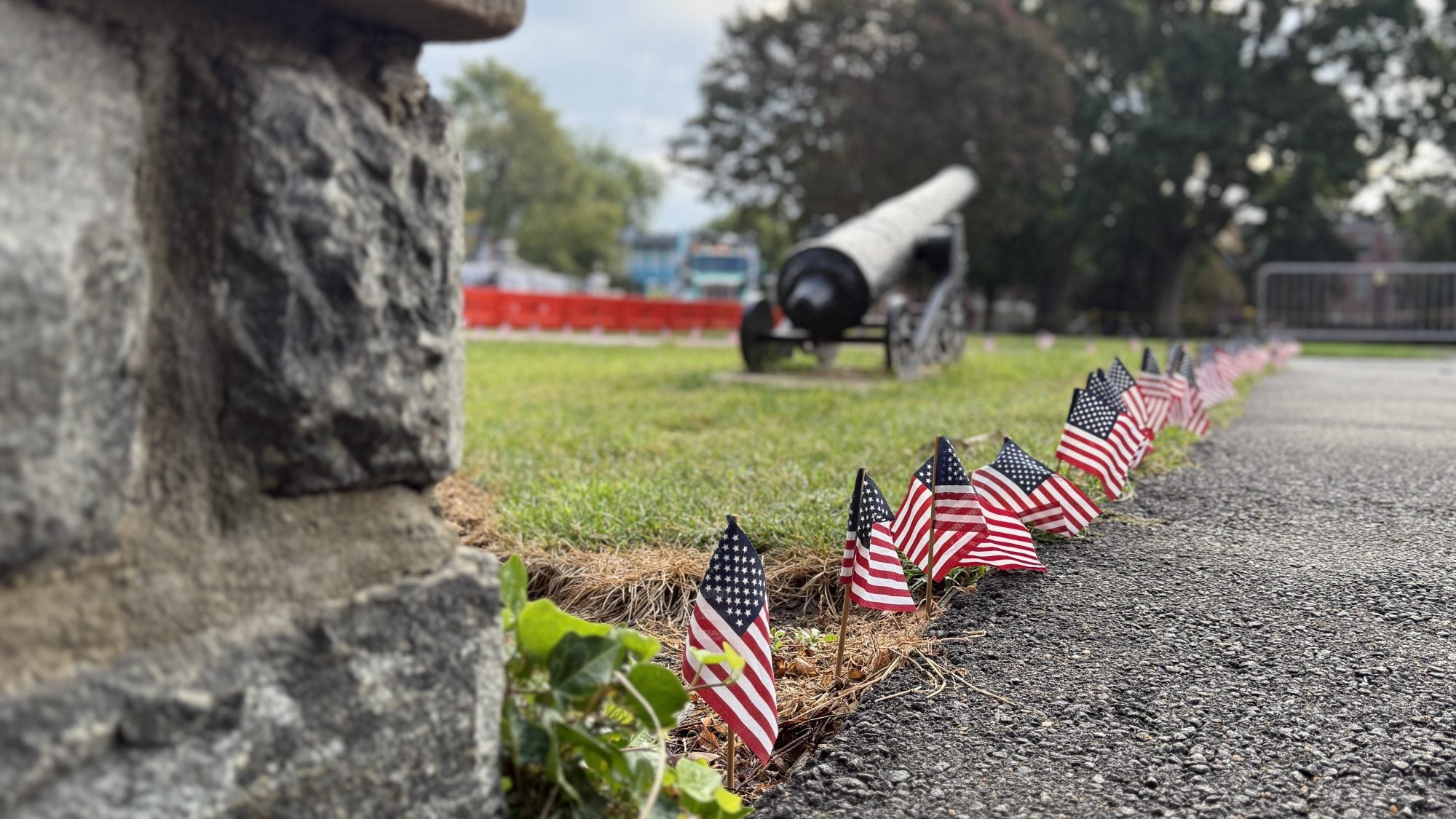Friends –
The horrific murder of conservative activist Charlie Kirk yesterday was shocking and devastating.
I didn’t know Charlie well, but I did know him. We met several years ago in a cable news green room, and in the years since, we had several spirited discussions. We couldn’t have been more different in our political beliefs or styles, but I always appreciated his willingness to have the conversation. He didn’t just tell people what he thought — he asked questions, challenging them to explain why they were right. We rarely ended up seeing eye to eye. But at least we could talk.
So today, I feel sick to my stomach, angry, and raw.
Maybe it’s because he was brutally gunned down while debating people under a sign that said “Prove Me Wrong” — the very kind of exchange we’re taught is central to free speech in a democracy.
Maybe it’s because his murder happened on a college campus – the place where the free exchange of ideas is most mission critical.
Maybe it’s because as a parent of two children, I can’t stop thinking about his own wife and two children — kids so young that they will now grow up not remembering their father. (If you pray, please keep them in your prayers.)
Maybe it’s because I still haven’t recovered from the shock and anger at the assassination of Minnesota House Democratic Leader Melissa Hortman and her husband, and the attempted assassination of State Senator John Hoffman and his wife — in their homes, just three months ago.
This type of political violence has become a toxin in the bloodstream of our democracy.
Since the founding of our Institute in 2015, we’ve seen this happen too many times: the 2017 shooting of Rep. Steve Scalise. The 2018 mail bomb campaign that targeted Barack Obama, Joe Biden, Hillary Clinton and others. The 2020 kidnapping plot targeting Michigan Governor Gretchen Whitmer. The 2021 attack on the US Capitol with direct threats against Vice President Mike Pence and Speaker Nancy Pelosi. The 2022 attack of Paul Pelosi in his home by an assailant looking for Speaker Pelosi. The 2024 assassination attempts on President Trump. The arson attack earlier this year on the home of Pennsylvania Governor Josh Shapiro. And now the murders of the two Minnesota legislators and Charlie Kirk.
And sadly, that is not even close to an exhaustive list.
What’s clear is that political violence is not an ideological or partisan problem. It’s an American problem. Public servants have been targeted on the left, right, and every point in between. This has to stop.
Political violence is wrong. Full stop. No caveats, no whataboutism. It’s wrong in every form. Dialogue, debate and disagreement should never be deadly. Especially not in America.
That shouldn’t be a controversial statement, right? And yet in polling conducted over the past several years, anywhere from 20-33% of respondents say that political violence in America is justified in some cases. That’s shocking.
In this era of hyper-polarization and social media, it’s far too easy to anonymously demonize and hate people we disagree with. If we can’t figure out how to humanize and understand them, I fear those poll numbers will only grow.
And yet, there’s room for hope. And it comes from young people.
Today is the 24th anniversary of the terrorist attacks of September 11, 2001. As I arrived on campus this morning, I was reminded of one of my favorite Georgetown traditions. Each year, on this day, the student leadership of Georgetown College Democrats, College Republicans and the Bipartisan Coalition come together early in the morning to plant more than 3,000 small American flags in the ground in front of the Healy Building. It is a reminder that despite very real political differences, we can still come together behind a common set of ideals. They demonstrate that very Jesuit ideal that no matter what we believe, we are all men and women for others.
And it’s not just limited to this day. Every day in the GU Politics Living Room, we see students and political practitioners from every point on the ideological spectrum come together in conversation. They come here not in the spirit of debate, but in the spirit of dialogue — to listen to, share, explore, but most importantly understand different perspectives. They know that in doing so they might be able to find common ground or common motivation. And when they can’t, they know that understanding different perspectives makes them better advocates for their own.
But maybe most importantly, by sitting down face-to-face and understanding people they disagree with, they see the humanity of those people. And as I often tell them, seeing the humanity in someone makes it so much harder to demonize them. And then maybe we are one step closer to lowering the temperature in our political discourse.
These students get that there is so much more power in a strong political voice than there is in an act of political violence.
Ever since we opened our doors 10 years ago, our Institute’s motto has been “Public service is a good thing. Politics can be too.” I still believe that it can be. But it’s up to all of us to make it so. These students are showing us how. And even on difficult days like today, GU Politics is going to keep giving them a space to do so. We hope you’ll join us in this effort. It’s never been more important.
And in the meantime — please take care of one another.
Mo
Mo Elleithee (SFS’94), Executive Director
